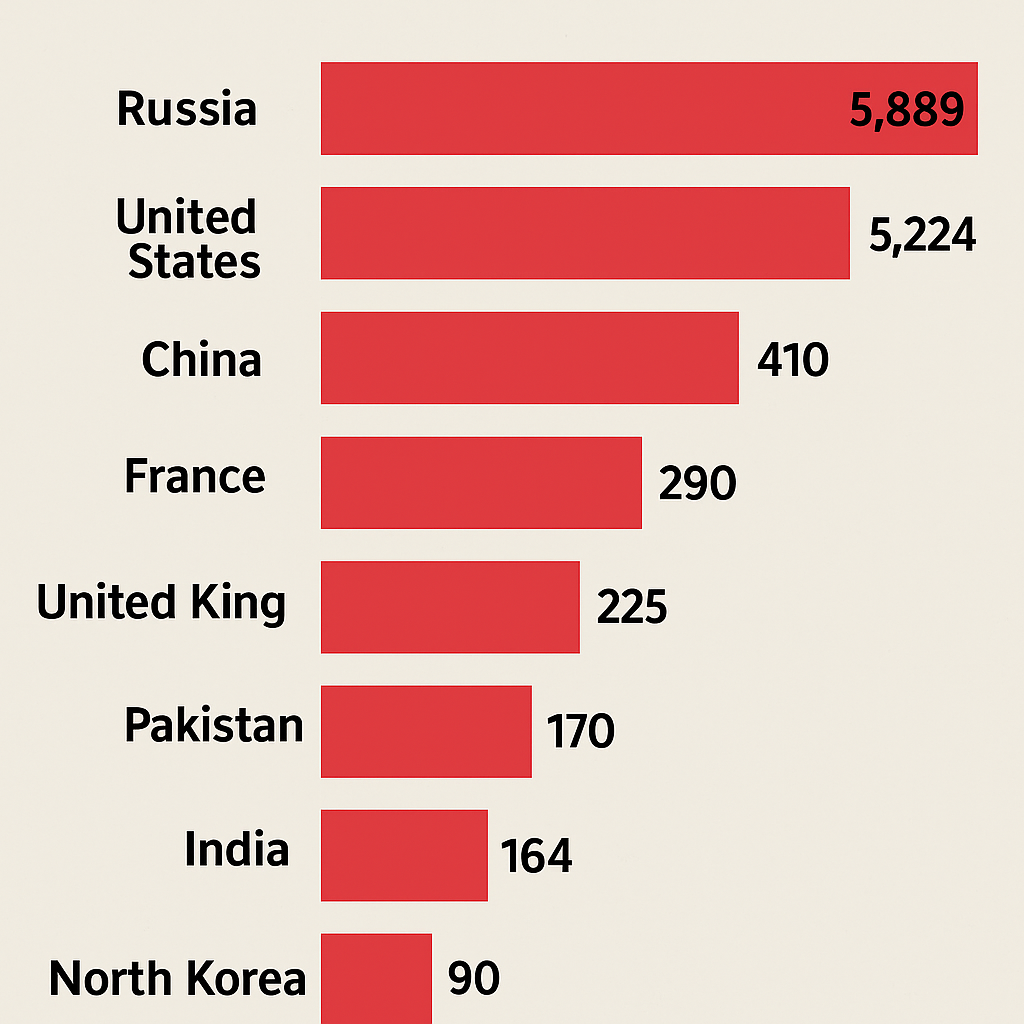Despite decades of arms control efforts and strategic reduction treaties, the world’s combined nuclear arsenal still exceeds 12,000 warheads, according to a comprehensive report released by the International Campaign to Abolish Nuclear Weapons (ICAN). While significantly lower than the Cold War peak of approximately 70,000 warheads, this number remains alarmingly sufficient to trigger catastrophic global consequences.
The latest estimates place Russia and the United States at the top of the nuclear hierarchy, together controlling over 11,000 warheads — nearly 92% of the global inventory. The remaining arsenal is distributed among seven other nuclear-armed states, including China, France, the United Kingdom, Pakistan, India, Israel, and North Korea.
Strategic Distribution of Nuclear Weapons in 2025
| Country | Total Nuclear Warheads |
|---|---|
| 🇷🇺 Russia | 5,889 |
| 🇺🇸 United States | 5,224 |
| 🇨🇳 China | 410 |
| 🇫🇷 France | 290 |
| 🇬🇧 United Kingdom | 225 |
| 🇵🇰 Pakistan | 170 |
| 🇮🇳 India | 164 |
| 🇮🇱 Israel | 90 |
| 🇰🇵 North Korea | 30 |
Implications for Global Security and Diplomacy
While disarmament treaties such as START, New START, and NPT (Non-Proliferation Treaty) have historically driven reductions in total warheads, modernization programs across major powers are shifting focus from reduction to strategic enhancement. Both Russia and the U.S. are actively upgrading delivery systems, warhead accuracy, and second-strike capabilities, raising concerns about an evolving arms race under the guise of deterrence.
Emerging powers such as China, India, and Pakistan continue to invest in ballistic missile systems, submarine-launched capabilities, and advanced command-and-control frameworks, intensifying regional deterrence postures and geopolitical friction, especially in Asia.
Expert Concerns
Security analysts warn that:
- The concentration of nuclear power among a handful of nations increases asymmetric threat scenarios.
- The growing blurring between tactical and strategic nuclear capabilities poses escalatory risks in localized conflicts.
- Non-signatories to global treaties, such as Israel and North Korea, add unpredictability to deterrence doctrines.
Efforts to revive global disarmament talks remain sluggish, with major nuclear states prioritizing geopolitical influence over cooperative de-escalation.


